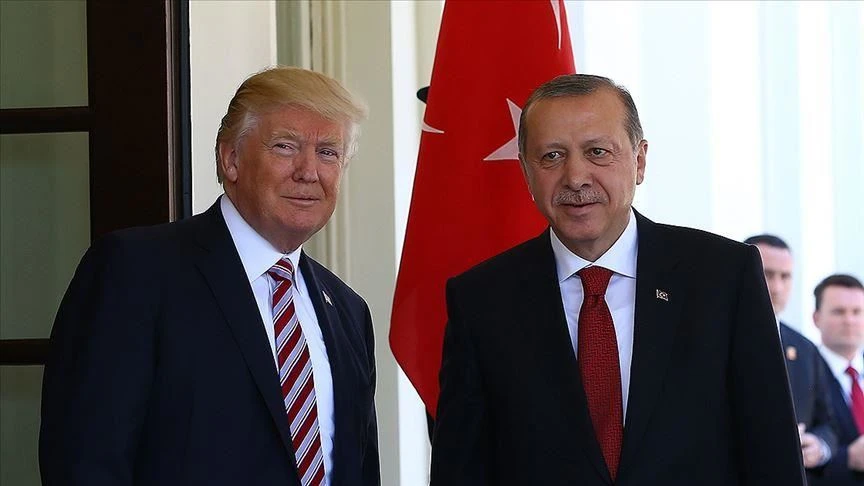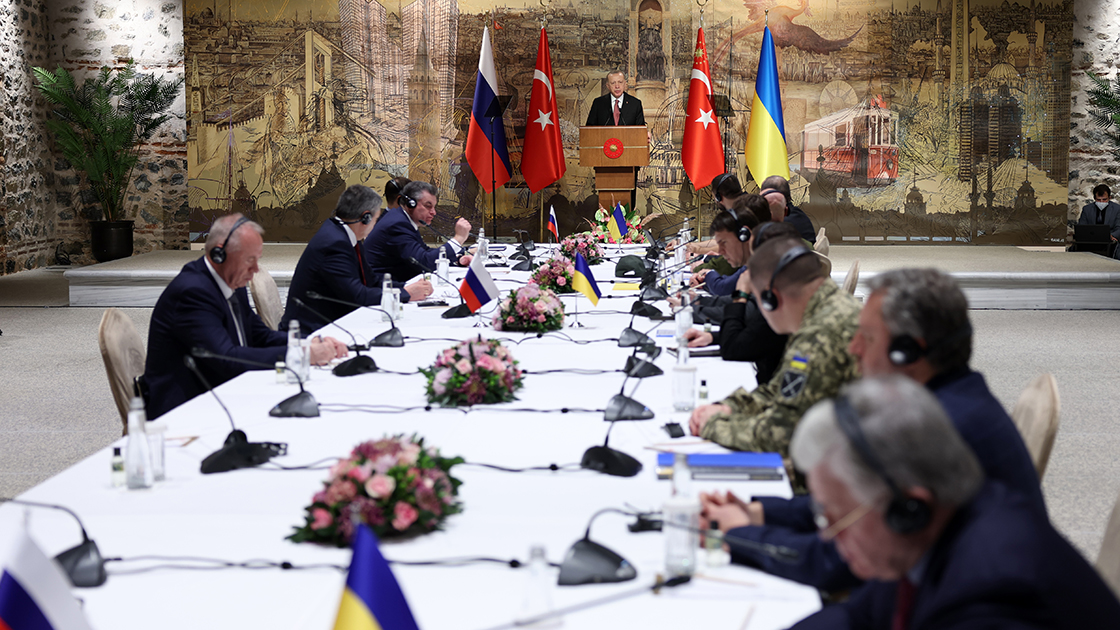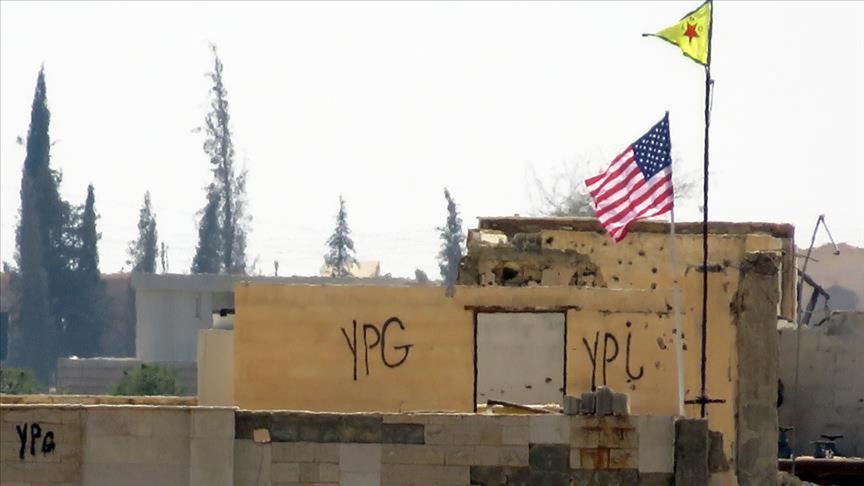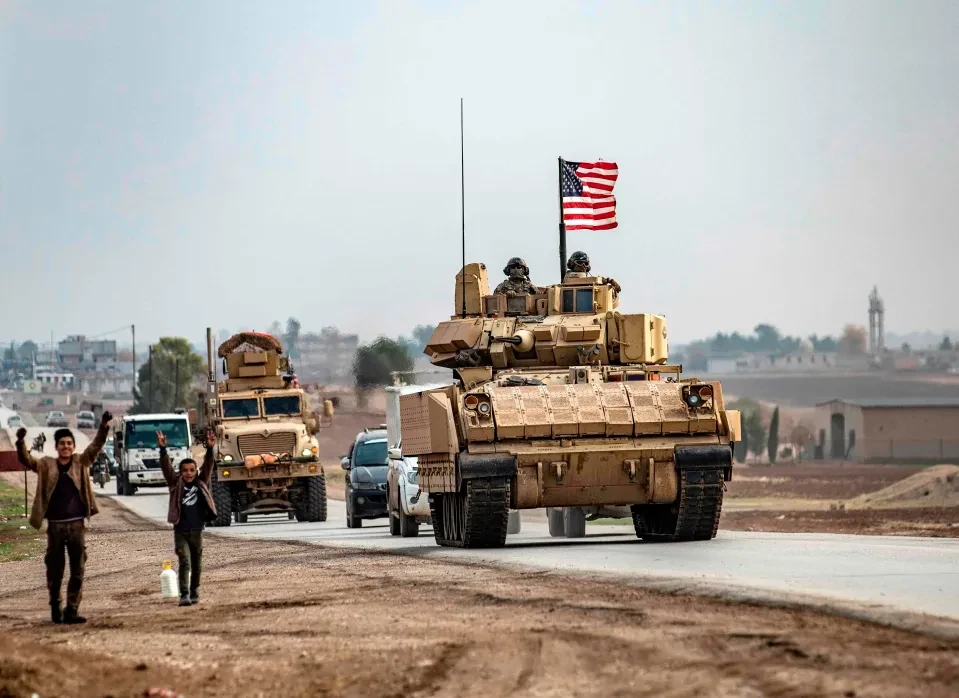Turkish-American relations during 2nd Trump era: What lies ahead?
 President Recep Tayyip Erdogan (R) meets with U.S. President Donald Trump. (AA Photo)
President Recep Tayyip Erdogan (R) meets with U.S. President Donald Trump. (AA Photo)
The historic Nov. 5 elections in the U.S. resulted in a decisive victory for Donald Trump. Trump, who is often described as an “unpredictable” leader by partners. During his first term as president, his decisions to initiate trade wars with China in protection of American manufacturing industry and to withdraw from the nuclear agreement signed with Iran by the P5+1 countries are cited as these reasons.
Although Trump may not follow traditional political norms and commit policy u-turns, he is a rational leader who prioritizes the US economy and national interests. His background as a businessman likely influences this approach. So, what does the second Trump term promise for Turkish-American relations?
Trump-Erdogan camaraderie
Trump’s election will create a positive atmosphere in Turkish-American relations. Although serious problems arose between the two countries during Trump’s first term, it was observed that dialogue mechanisms worked when crises peaked. In other words, when Turkish-American relations were on the brink of collapse, discussions between President Trump and President Erdogan made resolution possible.
Cease-fire in Russia-Ukraine war?
Joe Biden administration’s reluctance for peace in Eastern Europe, the Russia-Ukraine war which began in February 2022, turned into a war of attrition. The Biden administration believed that Russia should be drawn into a prolonged conflict to break its aspiration of being a “great power” and chose to provide military aid to Ukraine that would be enough for resistance but not for victory.

In contrast, Trump has a working relationship with Russian President Vladimir Putin. During his campaign, Trump even stated that he would end the war in Ukraine. This situation could create an opportunity for close cooperation between Washington and Ankara.
Türkiye, as the only country able to bring the warring parties to the table through the Grain Corridor Agreement, might become a crucial diplomatic player. Therefore, Trump may want to leverage President Erdogan’s diplomatic successes to end the war in Ukraine.
US support for terrorist group PKK/YPG
Trump often clashed with the American political establishment over the presence of troops in various regions. The Pentagon justified this military presence on geopolitical grounds, whereas Trump focused on cost-benefit analysis. Nevertheless, the Doha Agreement, which led to the U.S. withdrawal from Afghanistan on Feb. 29, 2020, was signed during Trump’s term.

Another issue concerning the Middle East was Trump’s stance on the U.S. withdrawal from Syria and Iraq. A move that could benefit Türkiye, but one that did not materialize nor end of U.S. support for the PKK/YPG terrorist group. The U.S. continued to provide training, intelligence and logistical support to the group during Trump’s presidency.
Eastern Mediterranean and US strategy to encircle Türkiye from south
The East-Med project, which aimed to create an anti-Türkiye bloc in the Eastern Mediterranean, was a development that took place during Trump’s presidency. Furthermore, the U.S. decision to arm Greece and even build up forces in Alexandroupoli occurred during Trump’s time in office.
In the following years, the Biden administration lifted the arms embargo on Greek Cyprus, further escalating anti-Türkiye actions in the region. The presence of the PKK/YPG terrorist group in Syria with U.S. support can be seen in the context of these developments, and the U.S. is encircling Türkiye from the south through its proxies: the PKK/YPG and Greece. This strategy began during the Trump era.
Ongoing genocide in Gaza and Abraham Accords
Since Oct. 7, 2023, the world has been witnessing a genocide on live television. The U.S. stance is one of the main reasons international organizations have failed to stop the killings. The Biden administration openly supports Israel’s massacres in Gaza and remains silent in the face of attacks on Lebanon. Does Trump’s promise to stop wars include stopping Israel?
Let’s recall the Abraham Accords. During his first term, Trump mediated the normalization of relations between Israel and Arab countries in the Gulf. The architect of this process was Trump’s son-in-law, Jared Kushner.
One of the reasons the Arab World has remained silent in the face of Israeli aggression is the normalization process established during Trump’s presidency. Additionally, it is worth noting that Kamala Harris, who lost the election, did not attend Israeli Prime Minister Benjamin Netanyahu’s speech in the U.S. Senate, and Israeli media reported that Netanyahu’s administration supported Trump’s election.
In contrast, Türkiye has consistently argued that Israel’s actions in Gaza must be stopped. Türkiye has also intervened in the ongoing genocide case at the International Court of Justice. President Erdogan and Trump may find themselves at odds over the issue of Palestine.
Crises in Turkish-American relations during Trump’s first era
During Trump’s first term, serious crises occurred in Turkish-American relations. The U.S. support for the PKK/YPG terrorist organization, its stance in the Eastern Mediterranean, its failure to extradite FETO leader Fetullah Gulen, and its rejection of Türkiye’s demands deepened the crises.
Additionally, the U.S. used the Halkbank case, based on FETO allegations, to put pressure on Türkiye. The U.S. also refused to sell Türkiye the Patriot missile defense system and imposed sanctions when Ankara chose to purchase S-400 systems from Russia. Moreover, Türkiye was excluded from the F-35 program.
The two countries also clashed over the involvement of U.S. Pastor Andrew Brunson in the July 15 coup attempt. Furthermore, Trump opposed Türkiye’s counterterrorism operations in Syria and sent a harsh letter to President Erdogan. Türkiye’s response was to launch an operation in northern Syria less than 24 hours after receiving the letter.
In conclusion, it is not possible to claim that a new chapter in Turkish-American relations will open based on the assumption that Trump and Erdogan have good relations. The two countries had serious problems during Trump’s first term, and the two sides will likely face off again in the next four years. However, based on past experience, the communication between the leaders could prove effective in resolving crises.



